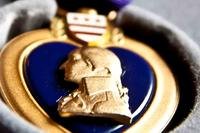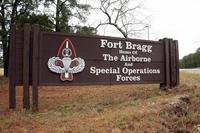A new Air Force policy may require recent T-38 Talon pilot training graduates to fly aircraft other than fighters or bombers, even if those are their preferred options, in an attempt to fill the ongoing aviator shortage.
A section of a memo, which was shared on social media and verified as authentic information by the Air Force, detailed that the service is "1,848 pilots short, with 1,142 of those being fighter pilots." Lt. Col. Phil Ventura, a Department of the Air Force spokesman, said that the memo mirrored similar information issued internally by Air Force Headquarters last month.
The Air Force unveiled what it called in the memo a "significant but necessary policy change" in which all career options will be open to graduates of T-38 training, not just fighter and bomber roles. So, instead of waiting as long as a year for openings in their chosen units, new pilots will go into other jobs, such as working with mobility and refueling aircraft.
"While we would prefer to send every qualified T-38 graduate to a fighter [Formal Training Unit], circumstances dictate that we utilize available capacity to maximize pilot production," the memo reads. "In the near term, in addition to traditional fighter/bomber assignments, T-38 graduates will be matched to additional T-6 First Assignment Instructor Pilot assignments and opted for non-fighter/bomber aircraft."
The memo explained that "T-38 students will include and prioritize all aircraft (not just fighter/bomber) on their dream sheets to ensure we can accommodate preferences." T-38 graduates can also volunteer for non-fighter or bomber roles.
The Air Force has struggled with recruiting, training and retaining on and off for roughly a decade, often dangling significant bonuses as a way to tackle the shortage, which has ranged from 1,500 to 2,000 pilots. Last fiscal year, which ended in late September 2023, the service was short on the new pilots it hoped to train by roughly 120 aviators, Military.com previously reported.
That shortfall was attributed to maintenance issues with the T-38 Talon, a shortage of instructors, and long wait times to get new students into classrooms and then the next phases of training.
The Department of the Air Force did not have the latest pilot production numbers for this fiscal year, but expects to have them once it ends after Sept. 30.
The memo detailed that the delay from the end of undergraduate and graduate pilot training to joining a formal training unit "now exceeds one year."
In response to Military.com questions regarding the issue, Brig. Gen. Travolis Simmons, the director of training and readiness for Headquarters Air Force Operations, said the delays in fighter Formal Training Unit start dates are "due to a combination of sustainment and manpower challenges."
While the Air Force has always given aircraft assignments based on the service's needs, Simmons said this change in policy is necessary to eliminate delays in getting pilots into jobs where they can start helping out.
"The aircraft assignment policy change is helping manage breaks in training by matching available pilots to aircraft with training capacity," Simmons said. "This policy shift optimizes use of our available resources and results in mission-ready pilots who are prepared to contribute sooner."
Should the pilot shortage situation become less dire and if the delays in fighter Formal Training Units are curbed, those T-38 Talon grads who didn't get to pursue jobs they wanted can volunteer in the future to transfer into those other aircraft.
"We will continue to fill all available fighter Formal Training Unit seats," Simmons said. "As Fighter Formal Training Unit capacity improves and Air Force needs dictate, pilots affected by this policy change will have the option to voluntarily crossflow to fighter/bomber aircraft."
-- Rachel Cohen contributed to this report.
Related: Air Force on Course to Again Miss Pilot Goal as Problems with Training Aircraft Persist












